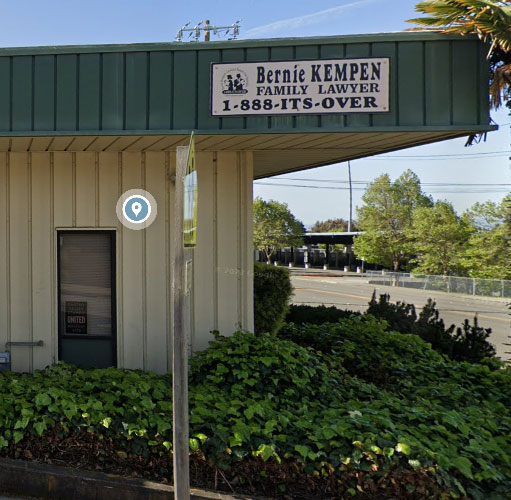When It's Over,
It's time to move on
Castro Valley Collaborative Divorce Lawyer
Collaborative Divorce Lawyer Castro Valley, CA
 A Castro Valley collaborative divorce lawyer understands that in today’s legal landscape, couples who decide to end their marriage have different choices as to the process that their divorce will go through. Rather than going the traditional route of litigation, many couples choose an alternative resolution option.
A Castro Valley collaborative divorce lawyer understands that in today’s legal landscape, couples who decide to end their marriage have different choices as to the process that their divorce will go through. Rather than going the traditional route of litigation, many couples choose an alternative resolution option.
What is alternative dispute resolution?
Alternative dispute resolution is another option for the divorce process. Instead of the adversarial stance that is usually inevitable in a litigated divorce, couples who choose alternative dispute resolution work together to come to a mutually satisfying and fair divorce agreement.
What types of decisions can be made using an alternative dispute resolution process?
All of the issues that the judge would decide are on the negotiation table for the couple. This includes child custody, asset, and property division, parenting time, spousal support, and other issues.
Although the couple may still disagree about these issues, they commit to each other to work together to come up with their own decisions rather than leaving it up to the courts.
Another benefit to alternative resolution is that the entire process is private, unlike litigated divorces, which become part of the court records.
What are the alternative dispute resolution process options?
There are several options that may be available, depending on your circumstances. The most common are collaborative divorce and mediation. Both of these choices are usually faster, less expensive, and much more peaceful process than litigating in a courtroom. Your Castro Valley collaborative divorce lawyer can evaluate your situation to decide which is best for you.
How does mediation work?
When a couple choices mediation, they work with a third party who is specially trained in mediation. This person is an unbiased individual. Although the mediator is typically an attorney, he or she does not represent either spouse. They also cannot offer legal advice to the couple. Instead, their role is to help the couple decide what their priorities are, what their options are, where they can compromise, and come to a final agreement.
How does the collaborative divorce process work?
With collaborative divorce, there is no third party. Instead, each spouse retains their own collaborative divorce lawyer. The parties work together to come up with agreements in their marital issues with the goal of arriving at a final agreement.
In addition to their lawyers, there is often a collaboration team that the couple may work with, such as financial advisors, real estate appraisers, child psychologists, and divorce coaches, who all help the couple reach their final divorce agreement.
Couples who choose the collaborative divorce process are often very motivated to make it work. That is because if they fail to come to a mutual agreement on their issues, the entire process ends and each of the spouses is required to retain the services of new attorneys.
How do I find out if collaborative divorce is appropriate for my situation?
To learn more about the collaborative divorce process, contact Kempen & Company to schedule a confidential consultation with a dedicated Castro Valley collaborative divorce lawyer.
At Kempen & Company, each Castro Valley collaborative divorce lawyer knows that not all divorces are settled in courtrooms. In fact, most divorces do not even go to trial. Not only are “traditional” divorces (divorces in which the two parties are not able to compromise and therefore a judge has the final say) costly, time-consuming, and exceptionally stressful, but they are also more difficult on children than an amicable or what is called a “collaborative” divorce.
Mediation
One option for collaborative divorce is mediation. During mediation, both parties will be admitted either to separate rooms or the same room, and an experienced mediator (usually a former judge or attorney) will act as a go-between for the two sides. You will be seated with your Castro Valley collaborative divorce lawyer while you make your opinions, concerns, and wants heard. The mediator will go to the other party to present them with that information and will come back to you with their response and their opinions and wants. This process is carried out until both parties either come to a mutual agreement or until it is apparent that no agreement can be made. However, the potential outcome of a mediation is not binding.
Arbitration
Arbitration is similar to presenting your argument to a judge who will make the final decision. While your arguments are not heard by a judge, the arbitrator will act as one. Arbitration takes place out of the courtroom and can be a less stressful, less expensive, more private, and more pleasant experience than going to court.
Conciliation Conference
If there is any chance that the two parties can work through their differences and salvage the marriage, it may be through a conciliation conference. During a conciliation conference, the goal is to improve communication and resolve disputes in a calm manner so that the two parties can see that staying married, if possible, is really in their best interest.
Is Collaborative Divorce Right for Me?
In order for a collaborative divorce to work, you and your spouse must still be able to effectively communicate with each other, be respectful, and be willing to compromise. Instead of holding on to past “harms and hurts,” collaboration tackles problems in a forward-focus manner.
However, collaboration will not work for couples who are at each other’s throats, figuratively or literally. One of the concerns that the American Bar Association (ABA) has with collaboration is that lawyers will not be able to effectively “screen out cases involving domestic violence, substance abuse, mental disorders, or other situations” where a spouse does not have sound decision making or one party is unable or unwilling to advocate for themselves.
To find out if a collaborative divorce is an option for your situation, contact Kempen & Company to discuss your options. Contact our office today to schedule a confidential consultation with a dedicated Castro Valley collaborative divorce lawyer.

Client Review
"Bernie and his team have been incredible! Always responsive, professional, and, most importantly, ethical. Bernie's recommendations are exactly what I would expect from a professional in this field. He does not want you wasting your money on something a judge won't ultimately approve in court. In my experience, his team has tried to save me money where they could. I highly recommend him and his team. They will put in the time and effort to ensure you are well represented!"
Devon Nieve


